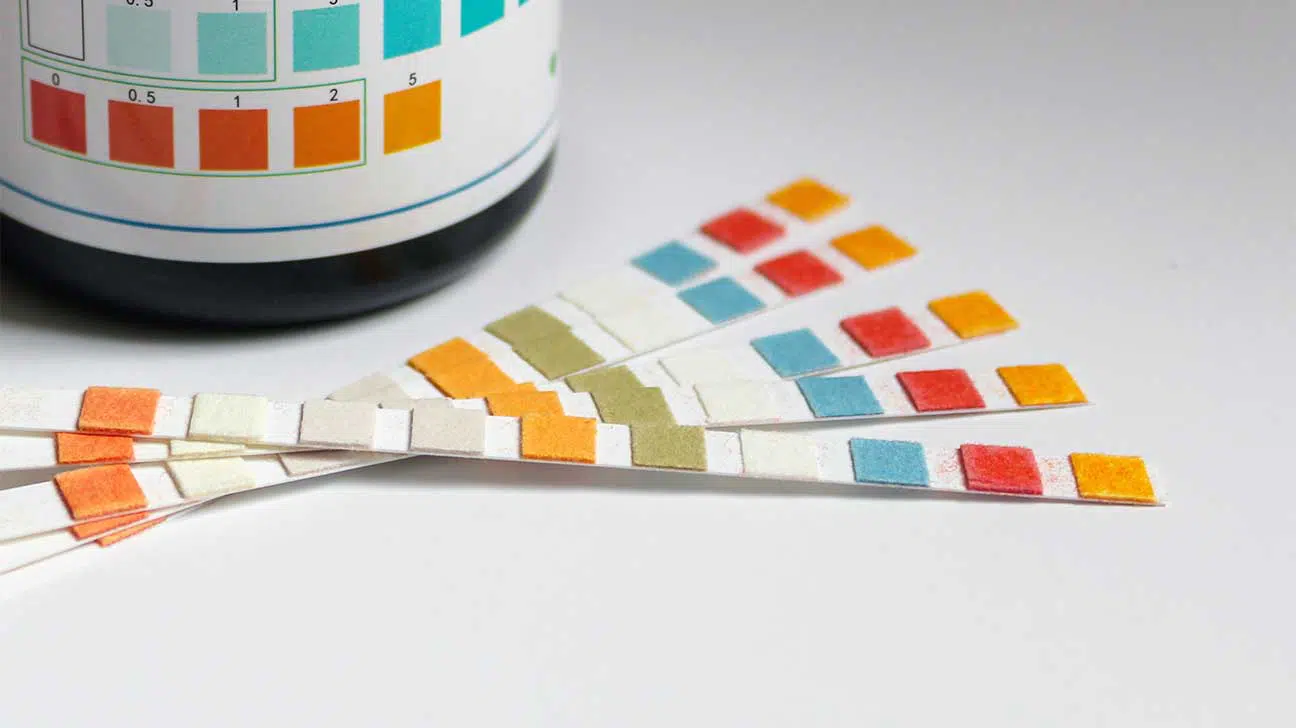How Long Can Klonopin Be Detected In Your System?
Often prescribed to treat panic disorders and anxiety, Klonopin is a controlled substance that can be detected on a drug test. Klonopin can be detected in your system for about a week or up to one month.

Klonopin can remain in your system for up to one month, depending on what type of testing is being used to detect the drug.
Drug detection windows can vary greatly depending on the type of test being used.
Known as a long-acting benzodiazepine, Klonopin has a half-life of 35 hours. This means it can take 35 hours for half of the drug to leave your system.
When misused, Klonopin can become addictive.
The following substance use disorders may also form as a result of using benzodiazepines:
- Xanax abuse
- diazepam addiction
- alprazolam misuse
- Valium addiction
- Ativan drug addiction
- temazepam abuse
What Is Klonopin?
Klonopin, the brand name for clonazepam, is in a class of drugs known as benzodiazepines (sometimes called ‘benzos’).
It is used in healthcare for the treatment of panic disorders and anxiety.
Klonopin is a prescription drug that works with the body’s central nervous system to create a calming effect that can benefit people with feelings of anxiety.
This calming effect is also a reason for prescription drug abuse with Klonopin.
Klonopin Drug Test Detection Times
Some drug tests can test for Klonopin and other benzodiazepines. These tests may be looking for Klonopin abuse specifically, or substance use in general.
How Long Does Klonopin Stay In Your Urine?
Urine tests can detect Klonopin for up to 30 days. The average pre-employment drug screening does not test urine for benzodiazepines, but more detailed tests can.
How Long Does Klonopin Stay In Your Saliva?
Klonopin can only be detected in oral fluid for up to 6 days. Saliva tests are not commonly used for benzodiazepines as they are considered unreliable for this type of drug.
How Long Does Klonopin Stay In Your Blood?
Blood tests can detect Klonopin for an average of 5 days after the last dose. For high doses or more frequent Klonopin use, it can be detected for up to 7 days.
How Long Does Klonopin Stay In Your Hair?
Some substances can take over a week to show up on a hair test, but can remain detectable for a long time. Klonopin can be detected in hair for as long as 30 days after the most recent dose.
Is Klonopin A Scheduled Drug?
Klonopin is considered a Schedule IV drug in the U.S. This means it is listed on the Drug Enforcement Agency (DEA)’s list of controlled substances.
Controlled substances are organized into five categories (or schedules) based on the drug’s potential for substance abuse weighed against its possible medical benefits.
These five schedules are defined as:
- Schedule I: These are substances that have no approved medical uses and are considered to be dangerous to consume. Illicit drugs primarily make up this category.
- Schedule II: These drugs are approved for few medical uses, but have a known potential to be highly addictive and give withdrawal symptoms if the drug is no longer taken. Strong opioids such as fentanyl are in this category.
- Schedule III: This category defines substances similar to category II, but carries less of a risk for addiction or dependency because they are less potent. Tylenol with codeine is an example of a Schedule III drug.
- Schedule IV: Klonopin is in this category because it has proven medical applications but does carry some risk of dependency. All benzodiazepines are listed as Schedule IV drugs.
- Schedule V: Drugs placed in this category contain small amounts of substances that are known to carry a risk of dependency. Robitussin AC contains small amounts of codeine and is categorized as a Schedule V drug.
Factors That Affect Klonopin Detection Times
The most important factors that can affect the length of time Klonopin remains detectable is the amount and frequency of use.
The higher and more frequent the dose of a drug, the longer it will take your body to clear it.
Other biological factors that are unique to every person can also play a big role in determining the amount of time a drug remains detectable on a drug test.
These biological factors include:
- age
- body mass
- hydration level
- metabolism (how quickly your body can break down metabolites)
- presence of other drugs
Will Klonopin Show Up On A Drug Test After One Use?
Even with only one use, Klonopin can be detected on a drug test. If the drug test simply gives a negative or positive result, it is more likely to come back positive with a single dose of Klonopin.
Threshold limits and the presence of other types of benzodiazepines can affect its detection window.
Some tests require a higher concentration of a drug to be detected before the result is considered positive.
Urine drug tests can show a single dose of Klonopin as soon as 24 hours after consumption. Other drug tests, like hair tests, can take several weeks to show the first dose.
Find Help For An Addiction To Klonopin
If you or a loved one is working through Klonopin addiction, there are quality treatment programs available that can help you overcome addiction.
Spring Hill Recovery Center offers both inpatient and outpatient programs that focus on treating mental health symptoms along with physical addiction.
Addiction treatment is just a phone call away. Call us today to start your journey to recovery.
- Drug Enforcement Administration (DEA) — Drug Fact Sheet: Benzodiazepines https://www.dea.gov/sites/default/files/2020-06/Benzodiazepenes-2020_1.pdf
- Drug Enforcement Administration (DEA) — Drug Scheduling https://www.dea.gov/drug-information/drug-scheduling
- Food And Drug Administration — Label: Klonopin Tablets (clonazepam) https://www.accessdata.fda.gov/drugsatfda_docs/label/2017/017533s059lbl.pdf
- Mayo Clinic Laboratories — Drug Testing: Benzodiazepines https://www.mayocliniclabs.com/test-catalog/drug-book/specific-drug-groups/benzodiazepines
- National Institute of Health (NIH) — Clonazepam https://medlineplus.gov/druginfo/meds/a682279.html


